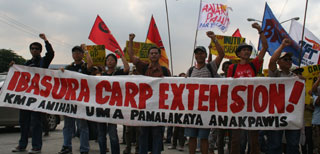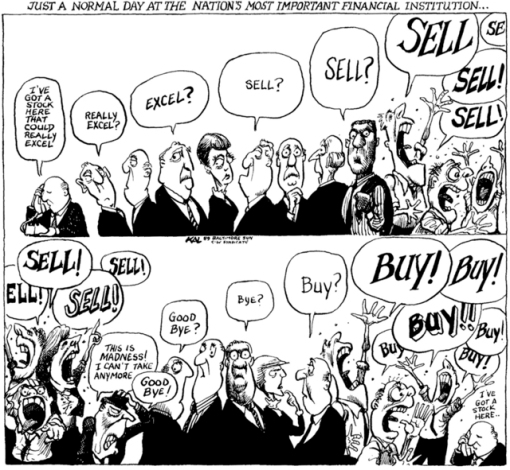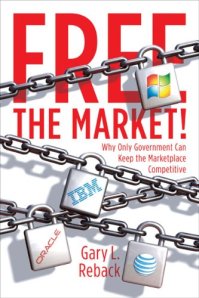
GARB ayaw CARPer
Beyond protests for and against CARPer or GARB lies a much deeper problem with the Philippine agriculture industry. A kilo of rice retails for 33 pesos at current market prices. Farm gate prices of the same kilo costs at 19 pesos. This is a 58 percent increase from the initial cost of buying from the farmer. Simply put, agriculture is good retail business.
What proves to me as striking though is the inherent stupidity of the system. Farmers, who work like carabaos with their carabaos get a small price for their work. Contrast with the market seller who just sells with minimal effort. One guy works his ass off, invests all the input for fertilizers, pesticides, herbicides and seeds while another guy gets most of the income. You just gotta love how capitalism works in this country.
Remnants of Feudalism
At the heart of this (parasitical) relationship is the age-old feudal fief-lord agreements. Landowners still entitle themselves to the fruits of other labors. They still view themselves as rajahs and datus. Inversely, the masa remain peons of their masters. Not surprising though, considering large tracts of the country area still owned by oligarchs in haciendas.
Free market
While landowning barons dominate the local scene, the fact that many farmers own their lands leaves a lot for improvement. Despite the numbers of independent breeders the price of their products hover at half the market prices. Which leads me into thinking, can’t the producers organize to raise their prices? Why can’t the magsasaka undersell the competition by 25 pesos? While it is true that unscrupulous merchants bind into indebted servitude hapless individuals, the truth is many people can still undersell the market

I hereby propose that a system or organization be set up to connect the magsasaka with the buyers. By organizing the peasant masses we can forego the parasitical capitalist connection and go directly to the consumer. Purchasing at a lesser price overall, the consumer themselves will invest in agricultural futures by investing in the inputs required for the initial set-up. The farmers will then raise the crops where they will be given back to the “stock holders”. This way we bypass the loan sharks and release the peasantry from their feudal bondage. Maybe then we wouldn’t have to worry about GARB OR CARPer.




